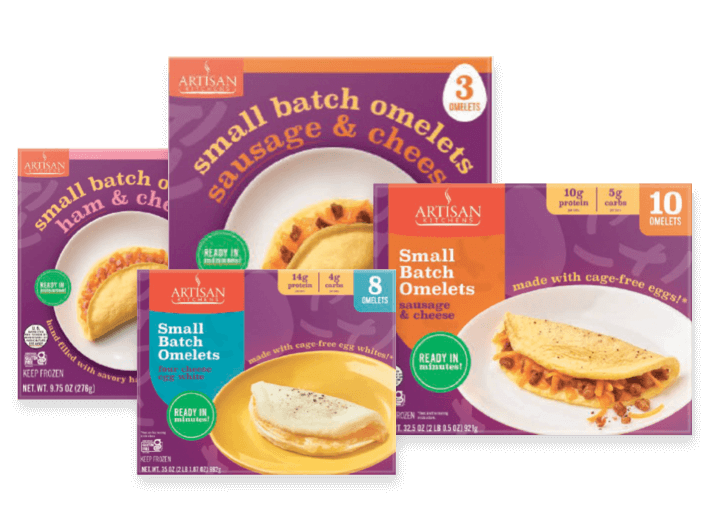Listen up, foodies! If you're serious about crafting the perfect omelet, fresh eggs should be your top priority. Ever wondered why chefs rave about using fresh ingredients? It’s not just about hype—it’s about taste, texture, and a whole lot of flavor magic. Fresh eggs are the secret weapon you’ve been missing in your kitchen arsenal. Let’s dive into why they matter so much when whipping up those golden, fluffy creations.
There’s nothing quite like the aroma of a sizzling omelet in the morning. Whether it's a quick breakfast or a fancy brunch spread, an omelet is the ultimate comfort food. But here's the deal—using stale eggs can ruin the party faster than you can say "over-easy." The freshness of your eggs impacts everything from the color to the consistency of your dish. So, if you want that restaurant-quality omelet at home, pay attention to what's in your fridge.
Think about it. Would you show up to a fancy dinner wearing yesterday's clothes? Probably not. Similarly, your omelet deserves the best ingredients possible. Fresh eggs aren’t just a preference—they’re essential. This article will break down why fresh eggs are non-negotiable when it comes to making omelets, and how you can elevate your cooking game with some simple tips. Stick around because we’re about to get saucy!
Read also:Dr Gina Sam The Trailblazer In Health And Wellness
Understanding the Science Behind Fresh Eggs
How Fresh Eggs Impact Taste
Alright, let’s talk science for a sec. Fresh eggs have a richer, more vibrant flavor compared to their older counterparts. When eggs age, the yolk starts to lose its structure, and the whites become watery. This breakdown affects the taste profile of your omelet, leaving it flat and uninspired. On the flip side, fresh eggs pack a punch of flavor that will make your taste buds sing. It's like comparing a fresh strawberry to one that's been sitting in the fridge for a week—there’s just no comparison.
Here’s a fun fact: The freshness of an egg directly correlates with its pH level. Fresher eggs have a lower pH, which means they retain their natural acidity. This acidity enhances the flavors of other ingredients in your omelet, creating a harmonious blend of tastes that will leave you craving more. So next time you’re at the grocery store, don’t be afraid to check the date on those cartons. Your taste buds will thank you later.
Texture Matters: Why Fresh Eggs Are Fluffy
Texture is everything when it comes to omelets. Who doesn’t love a soft, fluffy omelet that practically melts in your mouth? Fresh eggs are the key to achieving that perfect texture. The whites of a fresh egg are firmer and hold together better during cooking, resulting in a more stable structure. This means your omelet won’t fall apart as soon as you slide it onto your plate.
On the other hand, older eggs tend to spread out more during cooking, leading to a flat and less appealing omelet. Plus, the yolks in fresh eggs are firmer and more vibrant, adding a beautiful pop of color to your dish. So, if you’re aiming for that Instagram-worthy breakfast photo, fresh eggs are your best friend.
Health Benefits of Using Fresh Eggs
Let’s not forget about the health benefits of fresh eggs. They’re packed with essential nutrients like protein, vitamins, and minerals that your body needs to thrive. Fresh eggs are also lower in cholesterol compared to older eggs, making them a healthier choice for your morning meal. Plus, the natural antioxidants found in fresh eggs can help boost your immune system and keep you feeling energized throughout the day.
Here’s a quick rundown of the nutrients you’ll find in a single fresh egg:
Read also:Lexus Of Maplewood Your Ultimate Destination For Luxury And Performance
- High-quality protein
- Vitamin D
- Vitamin B12
- Iodine
- Selenium
So, not only do fresh eggs taste better, but they’re also good for you. Win-win, right?
Tips for Selecting Fresh Eggs
Check the Date on the Carton
When shopping for eggs, always check the expiration date on the carton. While this isn’t a foolproof method, it gives you a good starting point. Eggs are typically good for about three to five weeks after the expiration date, but it’s always better to err on the side of caution. If the date is too far in the past, it’s probably best to leave those eggs on the shelf.
Do the Float Test
Here’s a nifty trick for testing the freshness of eggs at home. Fill a bowl with cold water and gently place the egg inside. If it sinks to the bottom and lays flat, it’s fresh. If it stands upright or floats, it’s past its prime. This simple test can save you from accidentally using stale eggs in your omelet.
Look for Local and Organic Options
Whenever possible, opt for locally sourced or organic eggs. These eggs are often fresher and come from happier, healthier chickens. Plus, they tend to have a richer flavor and better texture, which makes all the difference in your cooking. Supporting local farmers is a bonus, too!
Common Mistakes to Avoid
Using Stale Eggs
As we’ve discussed, using stale eggs can ruin the taste and texture of your omelet. But that’s not the only issue. Stale eggs are also more prone to cracking during cooking, which can lead to a messy kitchen and wasted ingredients. Always double-check the freshness of your eggs before cracking them open.
Overcooking Your Omelet
Another common mistake is overcooking your omelet. Fresh eggs cook quickly, so keep an eye on the pan and adjust the heat as needed. Overcooking can dry out your omelet and make it tough, which is the opposite of what you’re aiming for. Remember, a perfectly cooked omelet should be slightly runny in the center for maximum flavor and texture.
Recipes to Try with Fresh Eggs
The Classic Cheese Omelet
Let’s start with a classic: the cheese omelet. This simple yet delicious dish is perfect for beginners and seasoned cooks alike. Here’s how you can make it:
- Crack two fresh eggs into a bowl and whisk them together with a pinch of salt and pepper.
- Heat a non-stick pan over medium heat and add a tablespoon of butter.
- Pour in the egg mixture and let it cook for a minute or two, gently stirring with a spatula.
- Add a handful of grated cheese to one side of the omelet and fold it over.
- Cook for another minute, then slide it onto a plate and enjoy!
Vegetarian Delight: Spinach and Mushroom Omelet
If you’re looking to add some veggies to your omelet, this recipe is for you. Start by sautéing some spinach and mushrooms in a pan until they’re soft and fragrant. Then, follow the same steps as the classic cheese omelet, adding the veggies in place of the cheese. This dish is not only delicious but also packed with nutrients.
Expert Insights on Fresh Eggs
According to renowned chef Gordon Ramsay, “Fresh eggs are the foundation of any great dish.” Ramsay emphasizes the importance of using high-quality ingredients in cooking, and fresh eggs are no exception. In his book “Ultimate Cookery Course,” Ramsay shares several recipes that highlight the versatility and flavor of fresh eggs. So, if you want to take your omelet game to the next level, follow the advice of the pros and always opt for fresh eggs.
Conclusion: Fresh Eggs, Fresh Starts
In conclusion, using fresh eggs when making omelets is a game-changer. From enhancing the taste and texture of your dish to providing essential nutrients, fresh eggs are the secret ingredient you’ve been missing. By following the tips and tricks outlined in this article, you can elevate your cooking skills and create restaurant-quality omelets right in your own kitchen.
So, what are you waiting for? Head to the store, grab some fresh eggs, and get cooking! Don’t forget to share your omelet creations with us in the comments below. And if you loved this article, be sure to check out our other food-related content for more tips and tricks. Happy cooking!
Table of Contents


